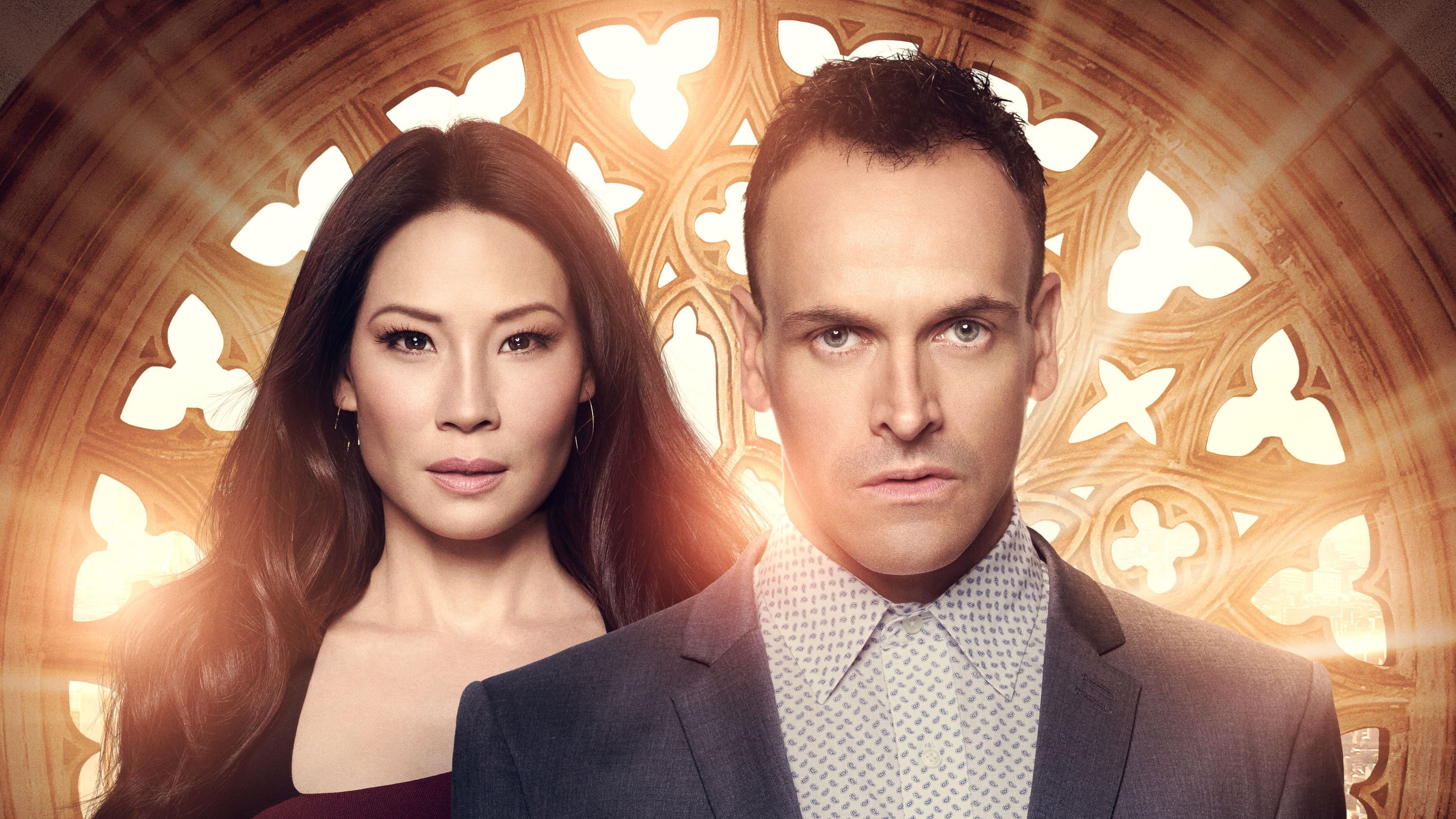Elementary - Season 2 (Part One)
‘This bee is its own species, which means it should not be able to reproduce with other kinds of bees.
And yet, nature is infinitely wily.’
‘So the bee got another bee pregnant?’
‘Quite so. Which means they should be reclassified as an entirely new species.’
This is the final conversation of the first season of the American series ‘Elementary’, between Sherlock Holmes and Joan Watson. The series puts the famous Sherlock Holmes novels by Sir Arthur Conan Doyle in a new perspective. This is not surprising, seeing as many new adaptations have been made over the past few years. It shows that this character, although it was created over a century ago, still hasn’t aged a day, which is also why America dares creating yet another version of the world’s most famous detective. The first season showed that it is a brave show as various core ideas of the Holmes novels have been altered (the rise of feminism, for instance), and when the aforementioned conversation between Watson and Holmes is to be viewed from the perspective of the series itself, one can deduce that the creators of the show are confident enough to classify themselves as a brand-new version of Sherlock Holmes. This means the stakes are high in the second season, but will it be possible to keep this interesting cocktail of the old and the new, of British and American appetising for another season?
In order to be able to understand the second season, we must first look back at the first. Sherlock Holmes (Jonny Lee Miller, ‘Eli Stone’) and Joan Watson (Lucy Liu, ‘Ally McBeal’) have framed their arch enemy Moriarty (Natalie Dormer, ‘The Tudors’), who has been captured by the FBI. She, indeed, because it turns out that Moriarty is the same person as the love of Sherlock’s life, Irene Adler. Season two continues where the first ended: Moriarty is safely behind bars and Holmes and Watson carry on with their mission to keep New York free of crimes. Unfortunately for Holmes and Watson, but luckily for the audience, this isn’t as simple as it sounds. This is why they have to return to Holmes’ beloved London in order to protect a former colleague of his. During this episode, we are also introduced to Sherlock’s brother Mycroft (very well played by Rhys Ifans, ‘Neverland’) whom he’s always hated. This trip to England is a very lucrative one indeed, especially for the series itself, as it shows how much Holmes has changed during his stay in New York.
The series focuses slightly too much on Holmes’ alteration; in the first season he was a junkie with no respect for anyone but himself, and in the second season he has made friends and even becomes a sponsor for another addict. This is illustrated most clearly when a colleague, Detective Bell (Jon Michael Hill) is shot, and Holmes doesn’t even realise why this is bothering him so much. Sometimes the sentiment is a bit too much, which raises the suspicion that the creators are trying to make Holmes a better person than he actually is. It shows that the Holmes we become acquainted with in ‘Elementary’ is a new character, one who better fits in modern-day America.
These, and other aspects, clearly show that the series is less true to the original stories than other adaptations. The title of the show, ‘Elementary’, is based on one of the most famous quotations of the detective. However, this was never said in the novels, but in one of the tv-adaptations. Therefore, the series is more based upon the film- and tv-adaptations than the novels. The most striking difference the fact that both Watson and Moriarty are women, which is a strong feminist alteration of the male-dominated Victorian London in which Sherlock Holmes was created. Also, the series is set in New York, and the creators of the show have cleverly woven this aspect in the series. In the course of the second series, there are several ‘real’ New York detectives who do not agree with Holmes’s approach, which is not always according to the law. In the best episode of the season several characters narrate one event, which shows the differences between Holmes, Watson and the rest. Hopefully there will be more episodes like this one, because it does get rather tedious to watch the team solve one case after another. It’s good to see the creators of the show realise this, too, and are trying to find solutions for this.
One of these solutions has already become quite predictable: Moriarty. The season-break of the first season was about Sherlock’s nemesis, and the same is true about this season, without any cause or reason. That episode was not as good as the previous as the climax was anticipated ten minutes before the ending. Therefore, it was not the cliff hanger it could have been. Also, the chemistry between Sherlock and Moriarty/Irene is less convincing than between Sherlock and Joan, which, considering the fact that Irene is Sherlock’s true love, undermines the credibility of their relationship.
Still, despite the final episode of the first half, ‘Elementary’ is an entertaining series which puts the age-old detective into a new perspective. The acting is good – Miller especially is great as Holmes, and Liu also loosens up as Watson –, and the plot lines are generally interesting. There are some minor flaws here and there, but hopefully the creators will avoid these in the future. Oh, and how the conversation about the bees ended in the previous season?
‘If you'd like, I could come and get you once they're all here.’
‘That's all right. I think I'll just watch.’
And that’s exactly what we’re going to do, too. Hopefully there will be many more episodes to prove that ‘Elementary’ really does present a brand-new Sherlock Holmes.
And yet, nature is infinitely wily.’
‘So the bee got another bee pregnant?’
‘Quite so. Which means they should be reclassified as an entirely new species.’
This is the final conversation of the first season of the American series ‘Elementary’, between Sherlock Holmes and Joan Watson. The series puts the famous Sherlock Holmes novels by Sir Arthur Conan Doyle in a new perspective. This is not surprising, seeing as many new adaptations have been made over the past few years. It shows that this character, although it was created over a century ago, still hasn’t aged a day, which is also why America dares creating yet another version of the world’s most famous detective. The first season showed that it is a brave show as various core ideas of the Holmes novels have been altered (the rise of feminism, for instance), and when the aforementioned conversation between Watson and Holmes is to be viewed from the perspective of the series itself, one can deduce that the creators of the show are confident enough to classify themselves as a brand-new version of Sherlock Holmes. This means the stakes are high in the second season, but will it be possible to keep this interesting cocktail of the old and the new, of British and American appetising for another season?
In order to be able to understand the second season, we must first look back at the first. Sherlock Holmes (Jonny Lee Miller, ‘Eli Stone’) and Joan Watson (Lucy Liu, ‘Ally McBeal’) have framed their arch enemy Moriarty (Natalie Dormer, ‘The Tudors’), who has been captured by the FBI. She, indeed, because it turns out that Moriarty is the same person as the love of Sherlock’s life, Irene Adler. Season two continues where the first ended: Moriarty is safely behind bars and Holmes and Watson carry on with their mission to keep New York free of crimes. Unfortunately for Holmes and Watson, but luckily for the audience, this isn’t as simple as it sounds. This is why they have to return to Holmes’ beloved London in order to protect a former colleague of his. During this episode, we are also introduced to Sherlock’s brother Mycroft (very well played by Rhys Ifans, ‘Neverland’) whom he’s always hated. This trip to England is a very lucrative one indeed, especially for the series itself, as it shows how much Holmes has changed during his stay in New York.
The series focuses slightly too much on Holmes’ alteration; in the first season he was a junkie with no respect for anyone but himself, and in the second season he has made friends and even becomes a sponsor for another addict. This is illustrated most clearly when a colleague, Detective Bell (Jon Michael Hill) is shot, and Holmes doesn’t even realise why this is bothering him so much. Sometimes the sentiment is a bit too much, which raises the suspicion that the creators are trying to make Holmes a better person than he actually is. It shows that the Holmes we become acquainted with in ‘Elementary’ is a new character, one who better fits in modern-day America.
These, and other aspects, clearly show that the series is less true to the original stories than other adaptations. The title of the show, ‘Elementary’, is based on one of the most famous quotations of the detective. However, this was never said in the novels, but in one of the tv-adaptations. Therefore, the series is more based upon the film- and tv-adaptations than the novels. The most striking difference the fact that both Watson and Moriarty are women, which is a strong feminist alteration of the male-dominated Victorian London in which Sherlock Holmes was created. Also, the series is set in New York, and the creators of the show have cleverly woven this aspect in the series. In the course of the second series, there are several ‘real’ New York detectives who do not agree with Holmes’s approach, which is not always according to the law. In the best episode of the season several characters narrate one event, which shows the differences between Holmes, Watson and the rest. Hopefully there will be more episodes like this one, because it does get rather tedious to watch the team solve one case after another. It’s good to see the creators of the show realise this, too, and are trying to find solutions for this.
One of these solutions has already become quite predictable: Moriarty. The season-break of the first season was about Sherlock’s nemesis, and the same is true about this season, without any cause or reason. That episode was not as good as the previous as the climax was anticipated ten minutes before the ending. Therefore, it was not the cliff hanger it could have been. Also, the chemistry between Sherlock and Moriarty/Irene is less convincing than between Sherlock and Joan, which, considering the fact that Irene is Sherlock’s true love, undermines the credibility of their relationship.
Still, despite the final episode of the first half, ‘Elementary’ is an entertaining series which puts the age-old detective into a new perspective. The acting is good – Miller especially is great as Holmes, and Liu also loosens up as Watson –, and the plot lines are generally interesting. There are some minor flaws here and there, but hopefully the creators will avoid these in the future. Oh, and how the conversation about the bees ended in the previous season?
‘If you'd like, I could come and get you once they're all here.’
‘That's all right. I think I'll just watch.’
And that’s exactly what we’re going to do, too. Hopefully there will be many more episodes to prove that ‘Elementary’ really does present a brand-new Sherlock Holmes.






